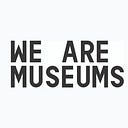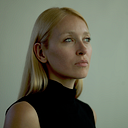18 Provocations to the Museum Community to Face the Climate Crisis
At “Museums Facing Extinction 2019” on 21/24 November, EIT Climate-KIC and We Are Museums gathered a hand-picked group of international museum experts at the Futurium in Berlin to produce solutions for museums to face the climate crisis.
The workshop started with a series of short speeches summarising the state of each museum represented in the journey towards a climate-resilient future with a provocation given by each expert to the museum industry (these presentations can be viewed on our Facebook page).
Read here these precious challenges which will set the tone of our 2020 programme and create the base of our upcoming workshops:
Diane Drubay, Founder, We Are Museums (France)
“Get inspired by the Biomimicry Life Principles and the XR Regenerative Culture to leverage social and environmental change at a local and systemic scale by acting simultaneously on 4 levels to move towards a better future for people and the planet.”
Bridget McKenzie, Founding Director, Climate Museum UK (United Kingdom)
“Museums should focus on ending an Extractivist culture, prefiguring a Regenerative culture and enabling wellbeing in a time of collapse & mass extinction. This is the distinctive role they can play as part of global & local civic coalitions mitigating, adapting to and reducing suffering as the Emergency unfolds.”
Camilla Tham, Anthropocene Engagement Manager, Natural History Museum of London (United Kingdom)
“Given the Anthropocene and the climate crisis, museums should be these places where anyone feels that they can come together, debate, discuss and talk about these challenging and frightening complex issues. I want to know how all our museums can be that place.”
Robert R. Janes, Founder and Co-Chair, Coalition of Museums for Climate Justice (Canada)
“When will we as individuals and museum workers begin to associate one idea with another and see the big picture of the climate emergency confronting us? Unless we begin to understand and appreciate that the Earth is a single system and that our human behaviour is imperilling this system on a global scale, we will continue to fail. Contrary to what you may be feeling, the climate change crisis is not a catastrophe yet, it is an enormous opportunity — an opportunity for museums to step forward as key intellectual and civic resources.”
Annesofie Norn, Curator, Museum for the United Nations — UN Live (Denmark)
“How can museums take a leading role in galvanizing people to act on the climate crisis and how can the whole museum sector collaborate to engage youth in transformative change?”
Dr Stefan Brandt, Director, Futurium (Germany)
- How to go beyond „preaching to the already converted“ — how to address people that are not yet convinced of the urgency of climate action?
Tension field: Addressing the unconvinced vs. staying attractive for the already convinced
- How to remain a credible dialogue platform for different opinions within the spectrum of people believing in climate change (e.g., supporters of more “evolutional” approaches vs. activist groups)?
Tension field: Neutral platform vs. base for activists
Dr Cara Courage, Head of Tate Exchange, Tate (United Kingdom)
- “We have cleared the low-hanging fruit of carbon change at Tate. We are now in the systemic period which is complex and difficult. Change in museums is contingent of so many factors, and we go through processes of very deep thought because we need to know what we are doing is right. I don’t want to change that, but how do we work at this pace when we realise that the climate emergency is not going to wait for us.”
- “I question the notion of museums as a civic place. Not all museums have the capacity to be an active civic space but all of them could be a relational space. I think there is a real positivity in that.”
Dr Kristin Alford, Director, MOD. / Museum of Discovery (Australia)
“There is an understanding for us here, at MOD, that in Adelaide people want to move from understanding climate change to see solutions. But we are in a tricky period now where solutions are not obvious. We are in a complex system where solutions would emerge, adapt, rise from networks. And we also know that we are doing this kind of information around solutions in a world that is full of fact ship news, misinformation, lack of trust in the political systems. So finding the right solutions and feeling that we have agency can seem a bit chaotic and uncertain.
How do we build that capability against that backdrop? And what mindsets and skills are required so we have the strengths and flexibility to make climate actions challenge across the long-term? “
Hannah Lee Chalk, Learning Manager, Manchester Museum (United Kingdom)
“If business as usual is not an option, then the role of cultural education is to support and nurture the collective action that is needed for a radically different future. We want to know how we might co-develop a future-facing curriculum and what that might look like. We know that this is about: nurturing ecological imagination and action, and a new ethic of care; drawing from and celebrating the wisdom and lived experiences of individuals and groups of all ages and backgrounds, times and places; and doing this in a way that remains firmly rooted and grounded in our own organisations — our people, our spaces, and our collections. What we want to know is how we do that”
Sholeh Johnston, Associate, Julie’s Bicycle (United Kingdom)
- “We have to demonstrate that we are the change as well as being facilitators of and commissioners of imaginative and artistic ways to engage with the public. We really do have to act our way into a new way of thinking. We like to talk about urgent and radical change but we also need to acknowledge that real transformation takes long term commitment, consistency and emotional intelligence.”
- “We are in this process of moving between business as usual and the viable future. We are in the messy middle. It feels scary. Change is really hard. But thankfully, science and psychological mapping are giving us ways so we can specifically respond and engage with people when they are in the different stages of that emotional process. I wanted to bring emotions in the room, as well as thinking about the kind of tangible ways of transformation, and not just change.”
Miranda Massie, Director, Climate Museum (United States)
“How do we maintain the sense of trust, physical space and cultural meaning that museums have a positive side in engagement and community space, which is attached to an institutional standing while engaging in activism?”
Michela Rota, Architect, Museum and Sustainability Specialist (Italy)
“Contemporary art and collections can create new messages to let people think in a different way but adding new layers of knowledge in the existing exhibition and collections.”
Rena Baledi, Project Manager, Museum of Movements (Sweden)
“Do we need ethical guidelines when we engage with local communities?” If yes, why? We can not do this alone. Museums can’t handle the environmental crisis alone, we need to do it with local communities through ethical guidelines.”
Ewa Chomicka, Manager of Museum Practices Lab, POLIN Museum (Poland)
- “Start the revolution from yourself. Change your personal habits, change habits inside of your museum, and afterwards to start to cooperate to develop habits and new practices in the local communities. Step by step.”
- “How can we create systemic support for museum professionals to make the climate crisis part of the highest priorities of the museum? “

